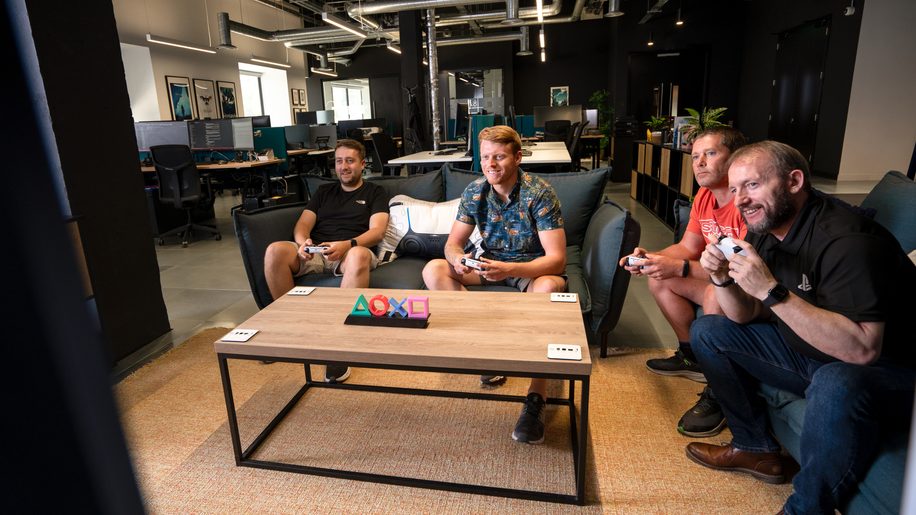Robust Imitation Learning for Automated GameTesting

By: Pierluigi Vito Amadori, Senior Engineer – Global R&D, Tim Bradley, Engineer II – Global R&D, Guy Moss, Senior Principal Engineer – Global R&D, Ryan Spick, Engineer – Global R&D
Game development can be a long and complicated process involving many intricate and meticulous testing processes along the way. Among these, human play testing stands out as a time-consuming endeavour, requiring testers to tirelessly execute repetitive tasks when looking for errors in a game build. EVOLUTE, our new machine learning model, delivers a novel approach to help reduce the gaming industry’s development costs and improve efficiency.
EVOLUTE introduces an imitation learning-based architecture that combines behavioural cloning (BC) with energy-based models (EBMs). This two-stream ensemble model strategically divides the action space of autonomous agents into continuous and discrete tasks. The EBM stream adeptly handles continuous tasks, providing refined and adaptive control, while the BC stream efficiently manages discrete actions, simplifying the training process.
In a rigorous evaluation within a shooting-and-driving game scenario, EVOLUTE showcases superior generalization capabilities compared to standard BC approaches whilst requiring significantly less training data. In this scenario, we use just several hours of human training data rather than several hundreds of hours. It boasts a broader spectrum of behaviours and achieves higher performances. Notably, EVOLUTE also proves easier to train than a pure end-to-end EBM model, making it a useful tool in the quest for more efficient and cost-effective game development.
Our research paper can be found on arxiv.org here: [2401.04572] Robust Imitation Learning for Automated Game Testing (arxiv.org)

